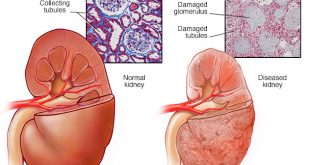What is MRSA infection?
MRSA means ‘methicillin-resistant staphylococcus aureus’. Staphylococcus aureus is a bacteria that normally lives on the skin of people and in people’s nose. Methicillin is an antibiotic that can usually kill these bacteria but unfortunately, some of them cannot be ‘killed-off’ with methicillin and hence they are named MRSA.
What do MRSA positive means?
It means that one of your test cultures showed that you are carrying one of these bacteria. Staff will take special precaution when they are treating you.
Can it be harmful?
Staphylococcus aureus is a normal bacteria that does not harm people in normal circumstances. In a dialysis patient, if the bacteria get into a wound or blood, it can cause serious infection and can make the patient very ill.
How does MRSA spread?
Staphylococcus, including MRSA, is mostly spread by interpersonal contact by the hands. It can also be spread by objects, such as towels and clothes that have been contaminated with the bacteria and then are shared or used by someone else. It is not uncommon MRSA infections spread among household members, or other people who have frequent that close contact and/or share personal items.
Careful hand-washing is the most important way to keep from spreading MRSA to other patients.
Who are at risk?
Anyone can become colonized and then infected with MRSA, although certain people are at a higher risk.
Risk factors for becoming infected with hospital-associated MRSA include the following :
- Having a surgical wound and/or intravenous (IV) line
- Being hospitalized for a prolonged period of time
- Recent use of antibiotics
- Having a weakened immune system due to a medical condition or its treatment
- Being in close proximity to other patients or healthcare workers who are colonized with MRSA
In hospitals and other long-term healthcare facilities, MRSA can be spread from one patient to another on the hands of healthcare workers. Hands or gloves may become contaminated with MRSA when healthcare workers touch a patient’s skin, wounds, wound dressings, or devices such as IV tubing.
People who need hemodialysis for kidney failure have a substantially higher risk of becoming infected with MRSA compared with other patients.
How do I know I have MRSA infection?
Usually, a culture taken from an infected site or blood specimen is needed to confirm the presence of MRSA infection.
Can MRSA be treated?
Yes. Although MRSA is resistant to many antibiotics, there are other medications that can be used to treat MRSA infection. Special laboratory testing can help doctors decide which antibiotics will be the most effective for treating an infection.
If antibiotics are prescribed, it is very important to complete taking the medicine entirely, as prescribed by the doctor. This will help prevent the bacteria from becoming resistant to the antibiotics used to treat the infection.
| Last Reviewed | : | 15 May 2016 |
| Writer | : | Dr. Loh Chek Loong |
| Accreditor | : | Y. Bhg. Datuk Dr. Ghazali bin Ahmad |
 PENDIDIKAN PESAKIT Kementerian Kesihatan Malaysia
PENDIDIKAN PESAKIT Kementerian Kesihatan Malaysia
